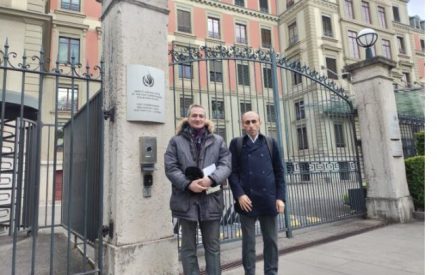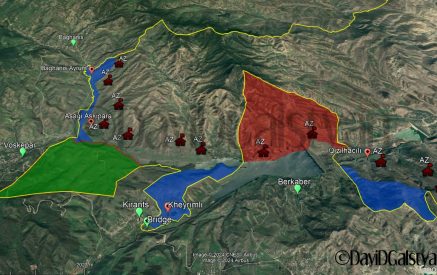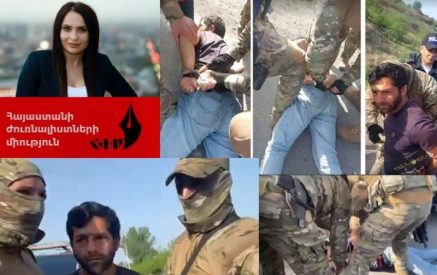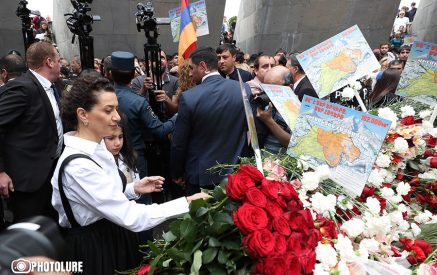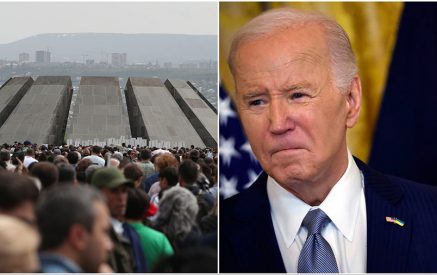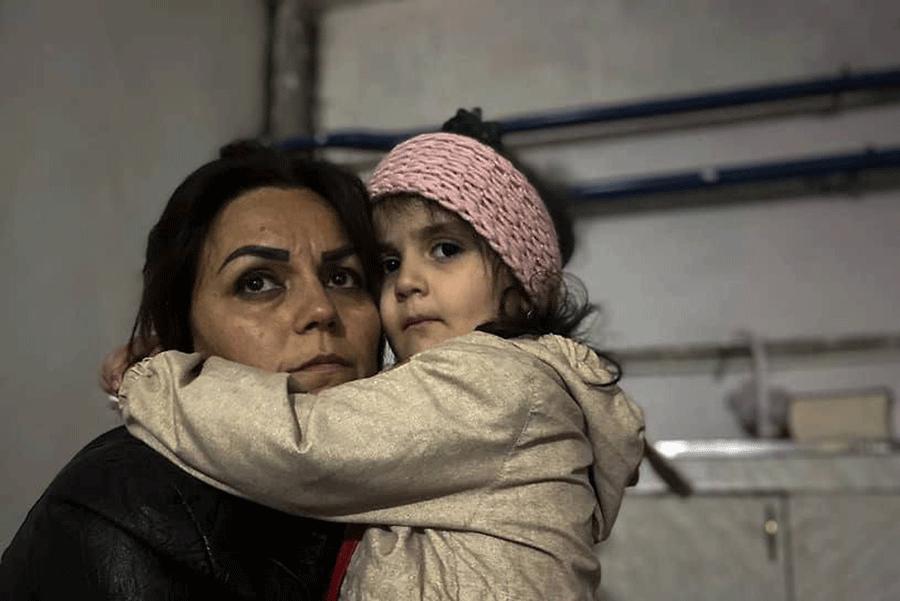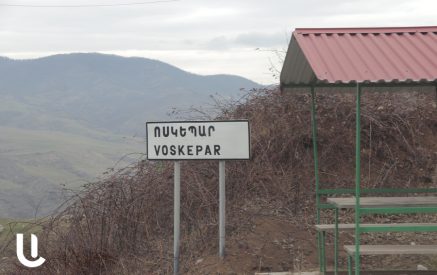by Stepan Piligian
About a week ago, a friend of mine, who is not Armenian, made a comment about the Artsakh blockade and Armenia’s historical challenges with the Turks. He said these issues have been present for generations, and we should consider them “normal.” I would usually consider such a comment insensitive, but I knew he had a more substantive message.
On September 19, Armenians in the western hemisphere woke up to the news of another barbaric and criminal invasion of Artsakh by Azerbaijan. Given Azerbaijan’s history of chronic duplicity, it should have come as no surprise that it was planning a military assault, while stating that humanitarian aid would be welcome by the International Committee of the Red Cross at Berdzor and by Russia at Aghdam. Still, one can never get used to criminal atrocities. Although the Russian Foreign Ministry denied prior knowledge of the unilateral assault, it is unlikely that Azerbaijan would have attacked without a green light from Russia, particularly with Russian “peacekeepers” in the path. While we have a warehouse full of empathetic messages, court rulings and demands to open Berdzor from the west, the Azeris ignored global civility, because it can.
Read also
Like most of you, I was rendered incapable of rational thought for a good part of the day based on utter frustration with our plight. Then I began thinking about that conversation from a week ago, and the message became clear. If Armenians continue to depend on others, then we can’t expect different results. It is not the thought that we are a small nation, but that others will save us and deliver us a secure future. This is a residual impact of our victim mentality and has clouded our culture since the Genocide. Victims who are denied justice become frustrated and cynical. We have a five thousand year old history, but we always lead with stating that we are victims of a genocide. It has taken 100 years in the diaspora for a generation to feel that their identity is understood and acknowledged by the general public. My generation grew up in a time when Armenians were not known and often confused with other ethnicities, like Albanian or Greek. We have made great progress in recognition of our identity, which has been reflected in innovative thinking to build our future. While we are more confident, our victim mentality is still deeply rooted in our psyche.
Since the emergence of the “Armenian Question” in 1878 after the Russo-Turkish War and the Congress of Berlin, Armenians have been inundated with false promises from the west. The toothless reforms advocated by Europe were reflected in Khrimian Hayrig’s “paper ladle” commentary. Sensing a lack of enforcement, the Ottoman Turkish Sultan Abdul Hamid II responded with horrific massacres of the Armenians in the western highlands in what is recognized by many as the beginning of genocidal policies.
After the end of World War I, the Armenians were again deceived by the promises of the Europeans. When my grandfather joined the Armenian Legionnaires along with over 5,000 other Armenian men in the diaspora, he was told that the reward for success in defeating the Turks would be an independent Cilicia. When the war concluded and allies basked in their victory, competitive behavior over territorial influence diluted the European influence and created a vacuum that led to the resurgent nationalist Turks. When the French rapidly withdrew from Cilicia after satisfying their appetite with greater Syria, the Armenians were left vulnerable to massacres. Thousands from Cilicia, including my grandparents, were forced to leave. The Armenians of Cilicia were subjected to three atrocities: in 1909, 1915-18 and again in 1920.
Still, we searched for a savior nation. The Republic of Armenia has relied on Russia for economic and military support. That support usually came with large ropes attached. Armenia became a vassal state, subjected to punitive measures such as Russian sales of modern weaponry to its enemies and green lights for offensive attacks. Overtures to the west have been subject to further retaliation by Russia. Russia’s inaction during the 2020 Artsakh War, and later as a “peacekeeping” force, is due in large part to Armenia’s appeals to the west. Although Russia refers to Armenia as a strategic partner, it treats it more like a whipping post. Lately, Armenia correctly refused to participate in the Collective Security Treaty Organization (CSTO) military games. The CSTO is a mutual defense pact similar to NATO. Despite overt attacks by a non-CSTO nation, Azerbaijan, the Russian-led organization has not supported Armenia. In response, Armenia held joint military exercises. This infuriated Russia, and it is likely the reason it has not thwarted the Azerbaijani attack.
For many years, the OSCE Minsk Group mediated the Artsakh conflict. Co-chairs Russia, United States and France produced volumes of meeting minutes but very few results. Azerbaijan constantly ignored confidence-building measures and agreements. Russia’s war in Ukraine effectively ended its mission and any dialogue between the three countries. Thus, Azerbaijan sensed no deterrence to its aggression. Armenia wasted decades complying with the OSCE process, while Azerbaijan ignored agreements with zero ramifications. This process has given way to three parallel and separate mediation efforts by the U.S. State Department, European Union and Russian Federation – which appears more like a race to see if they can outflank each other in the South Caucasus.
Turkey has no intention of good faith negotiations regarding Artsakh or Armenia. Their short term intention is to vanquish Artsakh through genocide, divide Syunik with the “Zangezur” path, and take the eastern shores of Lake Sev.
Armenia has become almost completely dependent on outsiders. It has refused to respond to military incursions, as a gesture of support for peace. It is abundantly clear that no one is going to save Armenia. Only Armenians will save Armenia. Armenia can pursue help in their interests as partners, but not as subordinates. Other small nations have succeeded in this. Why not Armenia?
It is time to take a sincere look in the mirror and not resort to wanton criticism, which will only further divide our people. We are not a small nation. Armenia and Artsakh may have limited territory, but we are a global nation of over nine million people. The diaspora is wealthy, generous and successful in nearly every discipline from diplomacy to science and technology. We must find a way to utilize the global capability of the Armenian nation. The diaspora must become better organized to fully engage its resources for the homeland. The homeland, in turn, must establish legal mechanisms to embrace the members of the diaspora into its security and prosperity. The silo model in the diaspora has run its course. I hope that initiatives like “The Future Armenian” expand and become integrated with the government of Armenia for optimum impact. There is no doubt that forward thinking initiatives like these will have an impact and help shed the victim mentality, but it is difficult to foresee optimal results without a unified effort. As a global nation, we have a long history of disunity and intra-competitive behavior. Our vision must be to see the connection between rivalries, disunity and suboptimal performance. Our survival and prosperity will need our very best, not simply our traditional approach. Armenia must be the global center of Armenian life, with a particular emphasis on defense industry, intelligence and economics.
A policy based on self interest, with global resources committed to the homeland, does not preclude the need or acquisition of allies. It simply creates continuous value for Armenia. Allying with a country with vindictive intent is not a partnership but a subordination. The transition to a more balanced reality is a road fraught with danger, but without that journey, the future is dim. Living as a proxy in a global conflict means assuming most of the risk. Who will care if Aliyev succeeds? The growing relationship with India is intriguing. India is wary of and openly opposed to the triangle relationship of Turkey, Azerbaijan and its traditional enemy Pakistan. Armenia provides them insight into that web and economic routes into European markets. The recent agreements to purchase military equipment should be accelerated. It has the possibility of a mutually advantageous relationship without overt subordination.
The answers we are seeking begin by looking collectively in the mirror, not to the west or the north alone, but to each other. We must create a new model to optimize the substantial capability of the Armenian nation. Today is a dark day for our brethren in Artsakh and all Armenians, but each day the darkness gives way to light. Welcome the light.



